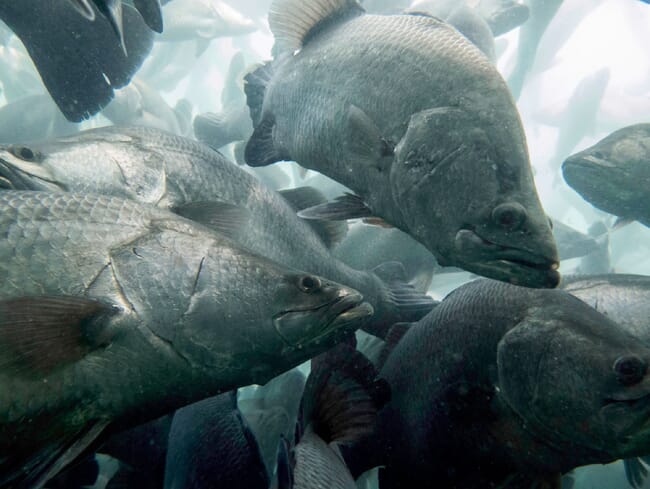
The sales competition, designed to accelerate the development and adoption of fishmeal and fish oil substitutes in feeds, will award US$100,000 in each of three categories – salmonid, shrimp, and other carnivorous species – to the contestants that produce and sell the most “fish-free feed” within their designated category.
“We are thrilled by the global participation we have for this challenge, definitely our most challenging contest to date,” said Kevin Fitzsimmons, F3 Challenge chair and professor at the University of Arizona. “Unlike omnivores, carnivores are choosier eaters and present a greater challenge.”
Four contestants have registered in the salmonid category — Chapul Farms, F4F Food for the Future Jiangsu Fuhai Biotech Co and Star Milling Co. in partnership with The Scoular Company.
In the shrimp category, four contestants registered — Empagram in partnership with Veramaris, Jiangsu Fuhai Biotech, Remediiate and De Heus LLC.
In the other carnivorous species category - BGreen Technologies is competing with Asian seabass feed, Jiangsu Fuhai Biotech Co with largemouth bass feed and Dainichi Corporation with red sea bream feed.
Contestants have until 30 November to submit feed samples and add partners. The winners will be announced in Fall of 2022.
Each year, an estimated 16 million tonnes of wild fish are caught exclusively for use as fishmeal and fish oil in global feed production. Salmon aquaculture, one of the fastest growing food production systems in the world, supplies roughly 70 percent, or 2.5 million tonnes, of all salmon produced and uses over 20 percent of the fishmeal and 60 percent of the fish oil consumed by the aquaculture sector globally. Today, over half of the global shrimp supply is farmed. Global shrimp farming production, which reached nearly four million tonnes in 2018 according to the UN Food and Agricultural Organization, is also one of the dominant consumers of the global fishmeal supply. A recent study found that if ‘business as usual’ continues, forage fisheries will reach ecological limits by 2037.
The qualifying feeds for all prize categories must not contain any ingredients consisting of, or derived from, marine animals, including but not limited to: fish, squid, shrimp, or krill.
Forage fish are crucial sources of food for other commercial fisheries like cod, salmon, tuna, and marine mammals like whales, dolphins and seals, as well as seabirds. Without alternative oil sources, the world’s oceans can not keep up with the demands from a growing world population, which could result in major supply chain disruptions for the aquaculture industry and an environmental crisis for wild fisheries. With one fifth of all global protein at risk, a feed shortage could result in a food shortage and humanitarian crisis.
The goal of the F3 Challenge contest series is to eliminate the use of wild-caught fish and other marine animals in aquaculture feeds to assure greater food security in the future from both wild and farmed sources. Supporting organizations of the F3 Challenge include the University of Arizona, The Campbell Foundation, Synbiobeta, The Nature Conservancy, University of Massachusetts-Boston, Anthropocene Institute, Dawson Family Fund, Sustainable Ocean Alliance, Tides Foundation, Cuna Del Mar, the National Renderers Association and Shanghai Jiao Tong University.
For official contest rules, visit: https://f3challenge.org/.




